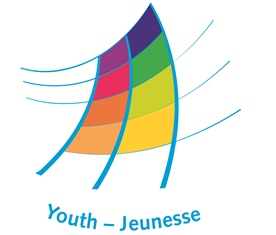Review of the implementation of Committee of Ministers Recommendation CM/Rec(2017)4
on youth work five years after adoption
In 2017, the Council of Europe adopted Recommendation CM/Rec(2017)4 on youth Work, marking a pivotal moment in the realm of European youth policy. This landmark recommendation served as the first Europe-wide policy document specifically addressing youth work, exerting a profound influence on both European policy and individual member states.
Five years after its adoption, the Council of Europe Joint Council on Youth (CMJ) initiated a comprehensive review process in 2022 to assess the implementation of the recommendation, according to the roadmap (CM/Rec(2017)4 Roadmap). The report on the review, based on the scientific contribution of Miguel Angel Garcia Lopez and Frederike Hofmann-van de Poll was presented and discussed at the 49th meeting of the CMJ in Strasbourg in October 2023; it will inform further reflections on ongoing implementation of the document.
 Methodology behind the review process
Methodology behind the review process
The review process employed a methodologically diverse approach, combining insights from various sources. A dialogue-driven exchange of experiences and examples of good practices formed the basis, incorporating a mixed-method methodology. This approach entailed desk research, standardised questionnaires, and other qualitative methods of data collection, review, and reporting. The overarching objective was to furnish member States and other actors in the Council of Europe youth sector with valuable insights to further facilitate the implementation of the recommendation. To gain a profound understanding of the recommendation's impact, a review seminar took place in Strasbourg in April 2023. This seminar brought together key stakeholders, including the Council of Europe, member States, European Youth Organisations, and national non-governmental organisations. The event facilitated discussions, exchanges of views, and the sharing of best practices. Additionally, in-depth interviews were conducted to garner nuanced perspectives on the practical implications of the recommendation.
 Key Conclusions of the review process
Key Conclusions of the review process
The Recommendation has played a crucial role in providing a structured framework and guidance for youth work at both the European and national levels and, furthermore, created youth work as a policy field of action in its own right. It has significantly contributed to the cohesion of the youth work sector, enhancing collaboration among stakeholders, and has served as a standard-setting instrument that was later followed by other European developments such as the Council of Europe Youth Sector Strategy 2030 and the EU Youth Strategy 2019-2027.
The Recommendation has also acted as a unifying element offering a place for many different initiatives to be further developed, thereby strengthening common ground and shared views on the challenges and opportunities of youth work within the Council of Europe youth work sector. The Recommendation on youth work has proved to be particularly important as a guideline for member states with emerging national youth work systems, a special focus being the establishment of political frameworks and laws, capacity building, the recognition of youth work as a field of work and “youth worker” as an independent profession. The Recommendation, furthermore, contributed to an increasing respect for the freedom and autonomy of youth organisations and other non-governmental organisations that carry out youth work across both member states with established youth work systems and those with emerging ones.
The review process has shown, however, that the Recommendation’s proposed measures are no longer “state of the art”, as the circumstances in which youth work takes place have changed compared to 2017. This is a post-pandemic situation, where digitalisation is increasing in importance, the consequences of the Russian war of aggression against Ukraine are being felt, and climate change is receiving increased attention. Furthermore, developments around the European youth work Agenda and the Council of Europe Youth sector strategy 2030 have set new priorities in the field of youth work. Additionally, it remains a challenge to identify causal relationships between the Recommendation and youth work developments. This could be linked to the increased number of European documents on youth work, or to the difficulties to relate European documents to national developments.
 Decisions of the Joint Council on Youth and follow-up
Decisions of the Joint Council on Youth and follow-up
In its meeting in October 2023 the CMJ took note of the report and its main conclusions, emphasizing that the Recommendation is the first Europe-wide policy document dealing with youth work as such. It was agreed that there is a need to continue to support a better implementation of the Recommendation and the development of youth work in Europe, as well as to further reflect on how the causality link between the Recommendation and developments at both the European and member States level can be strengthened. Furthermore, the CMJ agreed to maintain a working group to explore follow-up possibilities on the review process, also taking into account the results of recent related studies developed within the framework of the European Commission / Council of Europe Partnership in the field of youth.



